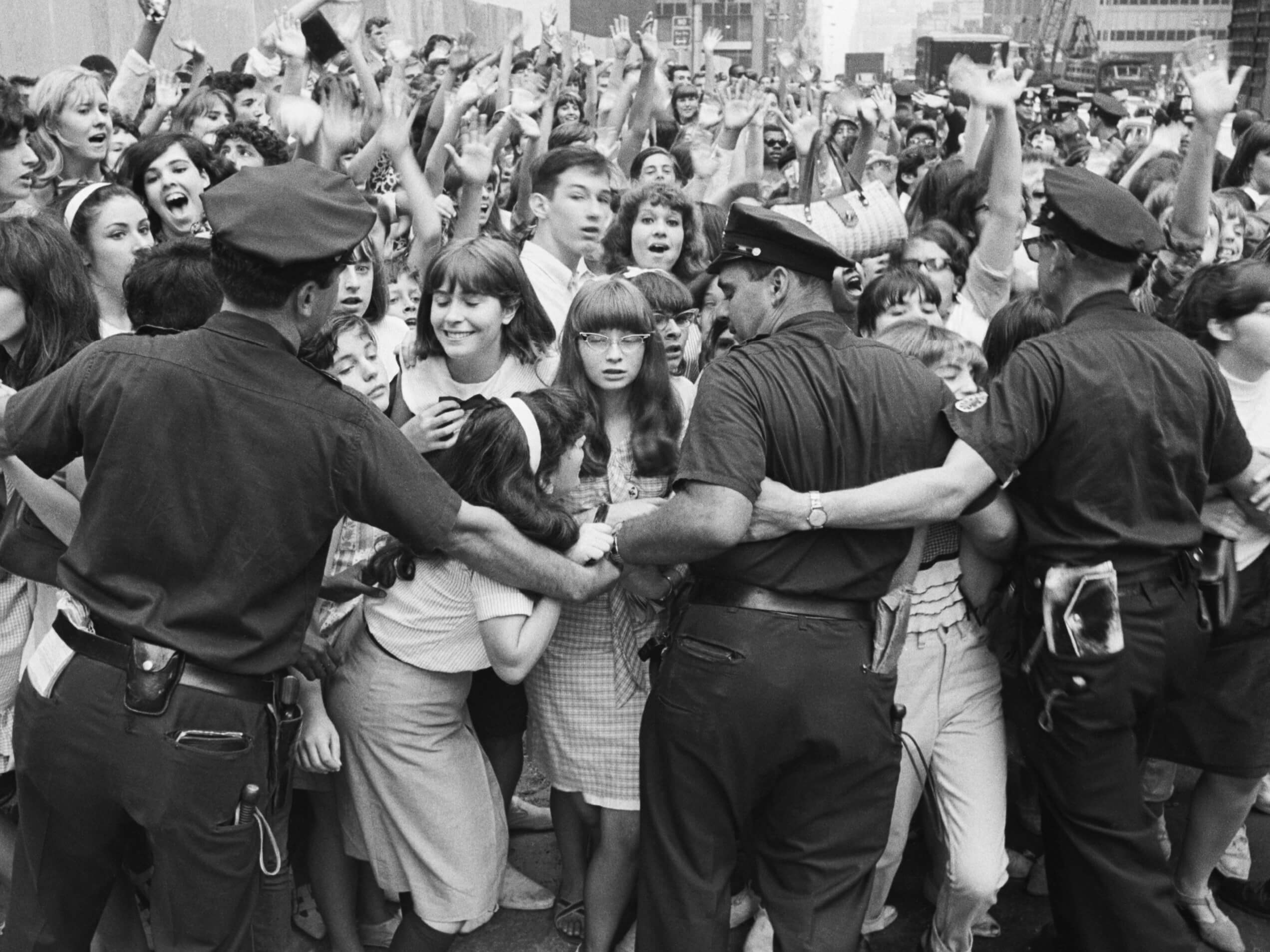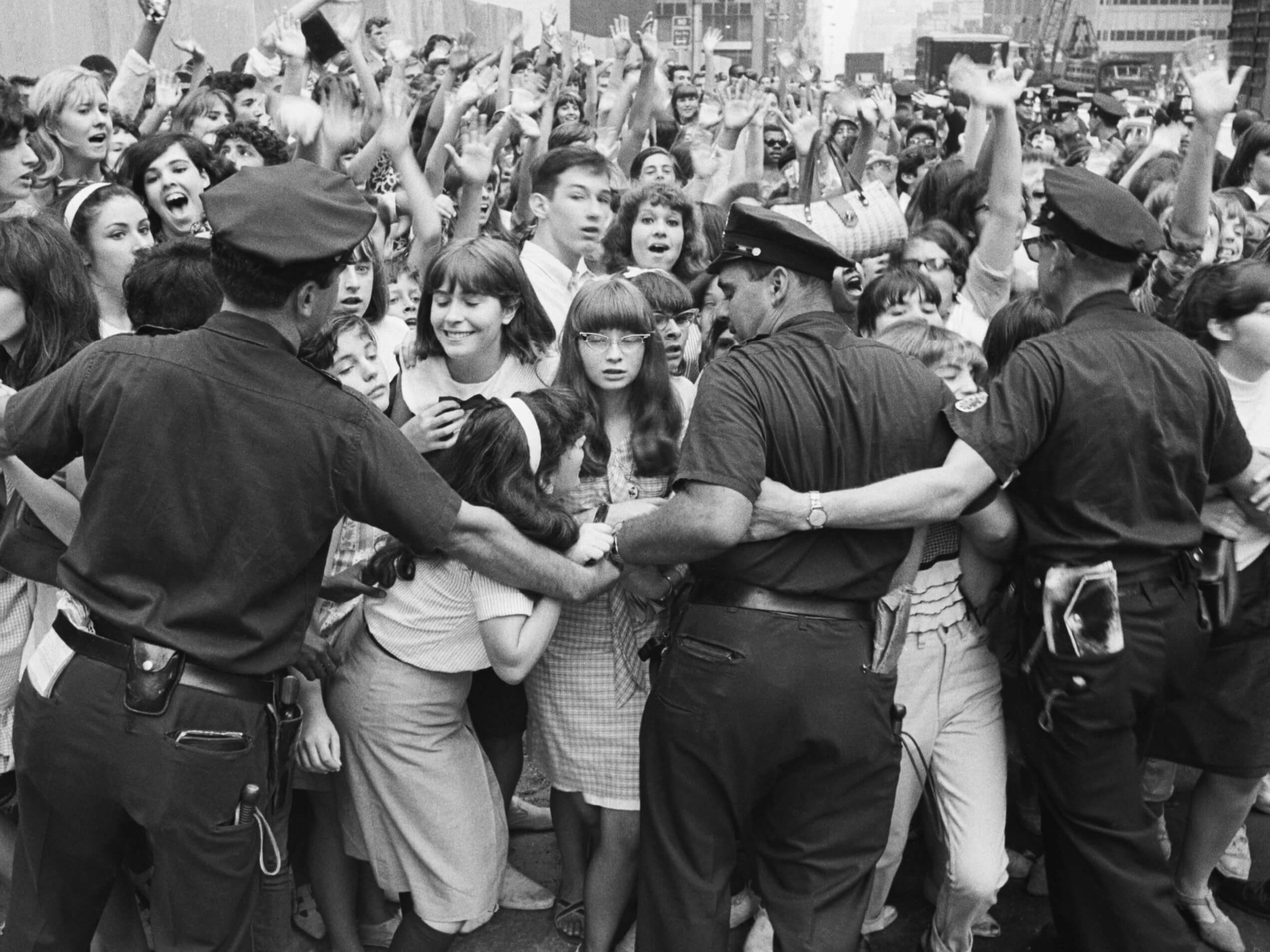
John Lennon Said 1 Line in The Beatles’ ‘Revolution’ Commented on Police
John Lennon said The Beatles‘ “Revolution” wasn’t attacking the concept of revolution. In addition, he said it contained some commentary on how people should interact with cops. Notably, he regretted writing one lyric from “Revolution.”

John Lennon was using The Beatles’ ‘Revolution’ to send a message to activists
In The Beatles’ “Revolution,” John famously sings “But if you go carrying pictures of Chairman Mao / You ain’t going to make it with anyone anyhow.” In a 1971 interview from the book Lennon on Lennon: Conversations with John Lennon, the “Imagine” singer criticized the line. “The thing I regret was making a reference to Chairman Mao, which might spoil any chances I have of going to visit China,” he said. “I’d love to go and see what’s happening there. But I wrote the Chairman Mao line in the studio ’cause I didn’t have any words.”
He explained the meaning of the line. “What I was trying to say to the Maoists, or anybody that wanted to change the world [was,] ‘Why go stand in front of a policeman with a red Communist flag in your hand and a big suit and then get hit?,'” he said. “I thought it was unsubtle.”
John Lennon revealed what The Beatles’ song was trying to about the wider culture
John further explained the meaning of “Revolution.” “So in the song, I wasn’t putting down revolution,” he said. “I was saying, ‘Isn’t that a bit unsubtle?’
“But if you want to really change the thing, do it subtly in a way that the establishment can’t attack — i.e., theater in court and/or bed events, Two Virgins, things like that, things that the establishment don’t understand,” he continued. “Therefore, they can’t kill it.” For context, Unfinished Music No. 1: Two Virgins is an avant-garde album that features John and Yoko Ono nude on the cover. The album cover was one of the most controversial moments of John’s career, with or without The Beatles.
‘Revolution’ might not have been a hit if John Lennon’s social message was more clear
“Revolution” was a minor hit for The Beatles in the United States. The tune reached No. 12 on the Billboard Hot 100, staying on the chart for 11 weeks. The track’s modest chart performance is understandable given that it was not a single. Instead, it was the B-side to the monster hit “Hey Jude.”
The Beatles were not the most political band in the world, but “Revolution” captured some of the political landscape of the late 1960s. In many parts of the world, activists were yearning for a revolution and just as many people were terrified at the thought of one.
In the song, John seems to be ambivalent about a possible revolution, variously saying he wants “in” and “out.” However, John said he was never trying to criticize the concept. Perhaps that was the case, but the tune probably wouldn’t have gained a mainstream audience if not for its ambivalence.
“Revolution” was great and it had more social commentary than some listeners might think.


